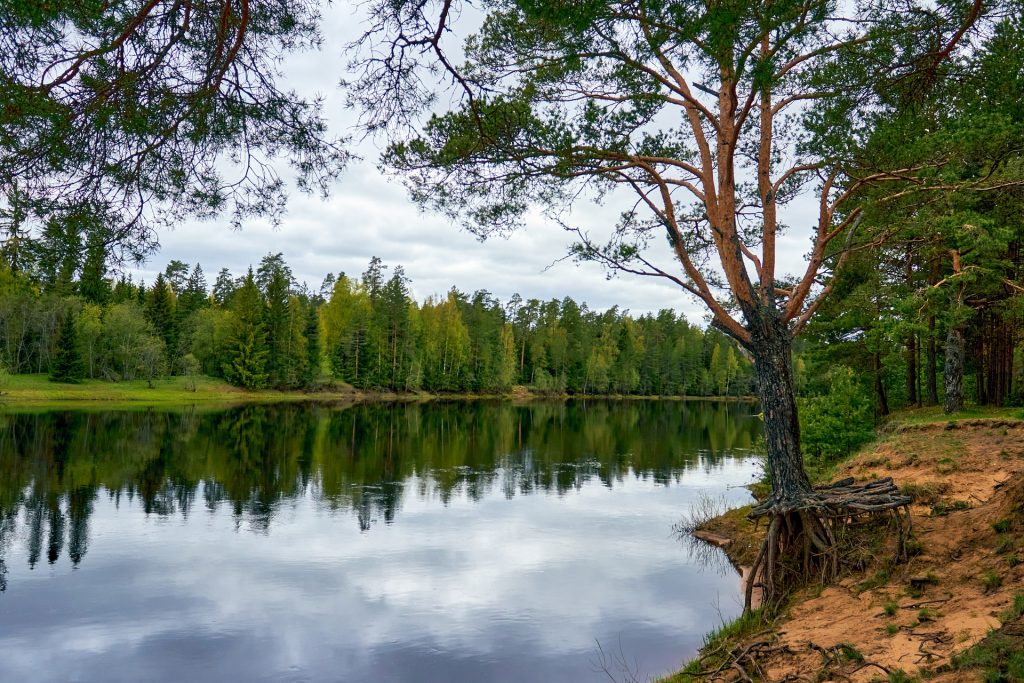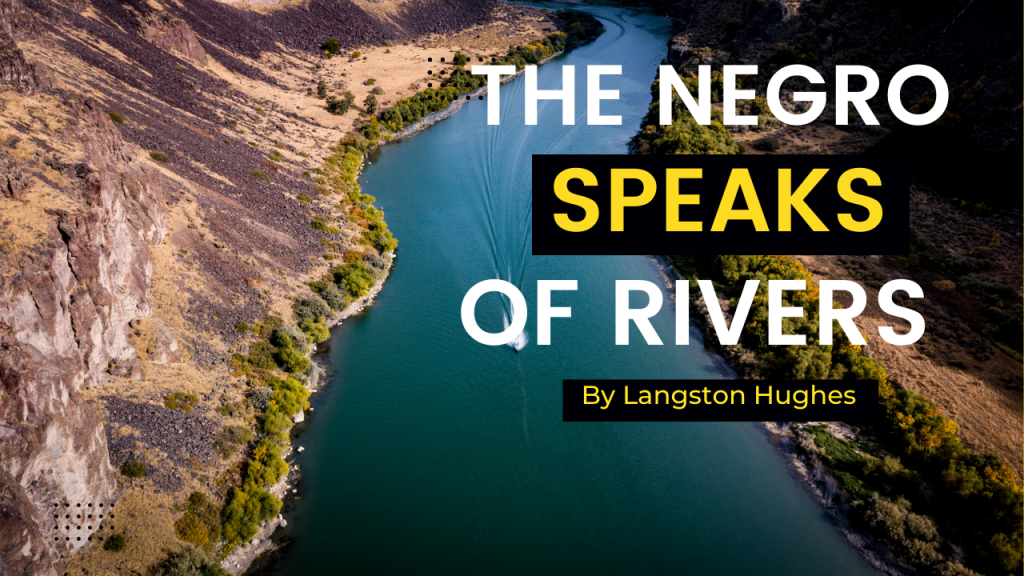The Negro Speaks of Rivers
by Langston Hughes
INTRODUCTION
Langston Hughes wrote “The Negro Speaks of Rivers” when he was 17 years old in 1920. It is often thought to be his first “mature” poem. He wrote this poem on the train journey to see his father. When he crossed over the Mississippi River, he got the idea to write this poem. He had trouble getting along with his father, who was black and didn’t like other black people. People say he wrote the poem on the back of an envelope which his father gave him. It came out in 1921 in a magazine called The Crisis that many African Americans read. At Hughes’s funeral in 1967, this same poem was read out loud. It’s written in free verse, but it has rhythm for sure. Hughes became a well-known leader of the Harlem Renaissance because of how well this poem did.
Now let’s read the poem first,
The Negro Speaks of Rivers by Langston Hughes
I’ve known rivers:
I’ve known rivers ancient as the world and older than the
flow of human blood in human veins.
My soul has grown deep like the rivers.
I bathed in the Euphrates when dawns were young.
I built my hut near the Congo and it lulled me to sleep.
I looked upon the Nile and raised the pyramids above it.
I heard the singing of the Mississippi when Abe Lincoln
went down to New Orleans, and I’ve seen its muddy
bosom turn all golden in the sunset.
I’ve known rivers:
Ancient, dusky rivers.
My soul has grown deep like the rivers.
Langston Hughes
THE FIRST FOUR LINES

The speaker of the poem, “I,” speaks about the African race and compares its people to rivers, which are old, natural, and give life. He also puts them in places all over the world that are important in history, religion, or culture. He starts by talking about rivers that were around long before people lived there. He comes from an ancient African race, and he feels like his soul has grown as deep as the rivers. Here, the speaker says that his people understand natural forces that have been around since before civilizations. The first four lines use the poetic device of metaphor in a beautiful way. People say that the depth of his soul is like the depth of a river. People also think that the rivers are in his blood and soul.
FROM LINE 5 to 7

From lines 5 to 7, the speaker is shown to be a voice of the African race that will never die. In these lines, he shows that his race is related to great and culturally rich civilizations that lived along the famous rivers in the Middle East and Africa. He says, ” I bathed in the Euphrates when dawns were young.” People think that the Euphrates River was an important part of the civilization of Babylon. People also say that it was around before people. He took a bath in the river while the civilization was being built. He uses the river “Euphrates” as a symbol for ancient cultures. Then he talks about the Congo River, which starts in Central Africa and ends in the Atlantic Ocean. He talks about the freedom he had in Africa, where he built himself a safe place to sleep and fell asleep to the sound of the river. He also talks about the Nile, which flows from Lake Victoria in Uganda, Africa, through Egypt, and into the Mediterranean Sea. Egypt’s great ancient civilization grew up along the same river. ” I looked upon the Nile and raised the pyramids above it,” says the speaker. This line is very different from the last one, where he was free. But in this place, he is a slave who is forced to help build huge pyramids. All of these things show that the speaker cares about rivers and uses them for many things.
FROM LINES 8 to 13
 All of these images add to the idea that the African people have always lived close to nature. After that, he compares the ancient rivers to the river Mississippi, which runs through many American cities. When he talks about this river and President Abraham Lincoln, he is talking about the fight to end slavery and free the slaves. The river Mississippi starts to sing. “The muddy bosom” of the river is a metaphor for how fertile it is, like a woman.
All of these images add to the idea that the African people have always lived close to nature. After that, he compares the ancient rivers to the river Mississippi, which runs through many American cities. When he talks about this river and President Abraham Lincoln, he is talking about the fight to end slavery and free the slaves. The river Mississippi starts to sing. “The muddy bosom” of the river is a metaphor for how fertile it is, like a woman.
The poem ends with the same words that were used to start it. As if it finishes the cycle of language and the cycle of water in rivers. This shows how long the speaker has been connected to the forces of nature. The phrase “dusky rivers” means both the brown, muddy water of the river and the dark-skinned Africans who were often called “dusky” or “dark.” In the last line, the speaker reaffirms his sense of racial pride, the connection to life-giving forces in nature, and the continuity of ancient and advanced civilizations.


Glad to go through such wonderful piece…. salute goes to Langston Hughes sir and the man who post this poem here…. thanks a bunch from bottom of my heart 💓💖💓💖💖💖
THANK YOU VERY MUCH!